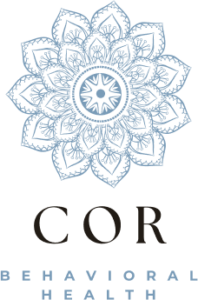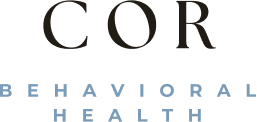
Mental health recovery is not a one-size-fits-all journey. While some individuals thrive with weekly therapy, others need more intensive, structured support—without stepping away from daily life.
This is where an Intensive Outpatient Program (IOP) bridges the gap. At COR Behavioral Health, we provide a leading Intensive Outpatient Program in Martin County, Florida, offering the flexibility to heal while maintaining your real-world responsibilities. IOP gives you the structure you need, the skills you deserve, and the support you can count on.
This guide explores what an IOP is, what you can expect, and how it lays the foundation for long-term mental health success.
What Is an Intensive Outpatient Program (IOP)?
An Intensive Outpatient Program (IOP) is a treatment option that provides structured therapy multiple days per week without requiring hospitalization or residential living.
Key Features of IOP at COR Behavioral Health:
- 9–15 hours of therapy weekly
- 3–5 days per week attendance
- A combination of Individual Therapy and Group Therapy
- Psychiatric evaluation and medication management
- Skills-focused workshops on emotional regulation, mindfulness, and communication
- Personalized treatment plans and continuous progress reviews
IOP is designed for individuals who need more support than traditional outpatient therapy but who are stable enough to live independently.
How IOP Supports Recovery: 5 Critical Ways
1. Structured Daily Support While Maintaining Independence
IOP offers consistent, reliable mental health support—without requiring you to put your life on hold.
Participants live at home, maintain part-time work, schooling, or family care responsibilities, while still benefiting from structured therapeutic services.
What a Typical Day in IOP Looks Like:
- Morning mindfulness and grounding exercises
- Skills-based group therapy sessions (CBT, DBT, trauma recovery)
- Psychoeducational workshops
- Afternoon check-ins and individual therapy sessions
Real-Life Example:
Hannah, a teacher, was able to continue working part-time while attending IOP sessions each morning. This allowed her to integrate the skills she learned into her daily life, resulting in faster, more sustainable recovery.
2. Immediate Application of New Coping Strategies
The ability to immediately practice coping skills in your everyday environment is one of the unique advantages of IOP.
At COR Behavioral Health, clients practice:
- Cognitive Behavioral Therapy (CBT) for changing thought patterns
- Dialectical Behavior Therapy (DBT) for emotion regulation
- Mindfulness and distress tolerance skills
- Communication strategies for personal and professional relationships
Emotional Impact:
When individuals practice emotional regulation, mindfulness, and interpersonal skills in real time, these skills become deeply ingrained—leading to better emotional stability and self-efficacy.
3. Comprehensive Emotional and Social Healing Through Therapy
Healing doesn’t happen in isolation. That’s why IOP incorporates both Individual Therapy and Group Therapy to support complete emotional growth.
At COR Behavioral Health:
- Individual Therapy in Martin County, Florida provides private exploration of trauma, identity, grief, or specific emotional hurdles.
- Group Therapy in Martin County, Florida fosters community, shared learning, and support. Participants discover that others share similar experiences, creating a powerful sense of belonging.
4. Smooth Transition from Higher or Lower Levels of Care
IOP is ideal as either:
- A step-down from a Partial Hospitalization Program (PHP) after stabilization
- A step-up from standard outpatient therapy if symptoms intensify
This flexibility helps ensure continuity of care, reducing relapse risks and promoting longer-term success.
At COR Behavioral Health, IOP bridges these stages by:
- Gradually decreasing therapy intensity while maintaining support
- Encouraging autonomy and real-world application
- Preparing individuals for complete outpatient therapy and independent wellness
5. Specialized Care for Co-Occurring Disorders
Many individuals live with both a mental health disorder and a substance use disorder.
Our IOP at COR Behavioral Health integrates dual-diagnosis care to address both conditions simultaneously.
Co-Occurring Care Includes:
- Mental health stabilization (depression, anxiety, PTSD, bipolar disorder)
- Substance use education and relapse prevention strategies
- Coping skills for triggers and cravings
- Family support and boundary-setting
Clinical Insight:
Integrated treatment leads to higher recovery rates than treating mental health and substance use issues separately.
How IOP Fits Into a Full Recovery Plan
Recovery isn’t just about stabilizing symptoms—it’s about building a full, meaningful life.
At COR Behavioral Health, IOP is part of a complete continuum of care, including:
- Partial Hospitalization Program in Martin County, Florida (PHP) for clients needing daily support
- Intensive Outpatient Program (IOP) for moderate daily support with flexibility
- Outpatient therapy for weekly or biweekly check-ins
- Long-term aftercare planning, alumni groups, and community support
This staged approach helps clients move toward independent living at their own pace—with guidance every step of the way.
Typical Day in IOP at COR Behavioral Health
Here’s what a day might look like:
| Time | Activity |
|---|---|
| 9:00 AM | Check-in and mindfulness exercise |
| 9:30 AM | Skills group (CBT, DBT, emotional regulation) |
| 10:45 AM | Psychoeducation workshop (coping with triggers, healthy routines) |
| 12:00 PM | Group Therapy session (processing emotions, building relationships) |
| 1:00 PM | End of day reflection and goal setting |
Common Myths About Intensive Outpatient Programs
Myth 1: “If I need IOP, it means I’m really broken.”
Truth:
Seeking structured help is a sign of strength—not weakness. IOP is for individuals committed to healing with greater support.
Myth 2: “I won’t have any free time.”
Truth:
IOP typically requires 3–5 days a week for a few hours at a time, leaving plenty of time for work, school, or family commitments.
Myth 3: “Group therapy will be uncomfortable or judgmental.”
Truth:
Group therapy at COR Behavioral Health is a safe, respectful, professionally guided environment where vulnerability is honored, not judged.

Who Should Consider an IOP?
You may benefit from an Intensive Outpatient Program in Martin County, Florida if:
-
Outpatient therapy isn’t enough to manage symptoms
-
You are stepping down from inpatient hospitalization or PHP
-
You are experiencing emotional distress but are stable enough to live independently
-
You want intensive support without pausing work, school, or family life
-
You are committed to participating in therapy multiple days per week
Why Choose COR Behavioral Health for IOP?
At COR Behavioral Health, we deliver more than treatment—we offer a path to full, empowered living.
Here’s what makes us different:
- Compassionate, trauma-informed clinical teams
- Customized plans built around your goals
- Integration of individual therapy, group therapy, psychiatric care, and family support
- Smooth step-down transitions between levels of care
- A safe, judgment-free community for healing
You don’t have to navigate mental health recovery alone. We’ll walk with you—every step of the way.
Conclusion
Healing doesn’t happen in isolation—it happens with the right structure, the right tools, and the right community behind you.
An Intensive Outpatient Program (IOP) offers more than just therapy sessions—it offers a bridge back to life, one meaningful step at a time.
At COR Behavioral Health, our Intensive Outpatient Program in Martin County, Florida is designed for people who are ready to heal but need flexible, structured support to do it. Whether you’re stepping down from a Partial Hospitalization Program (PHP), seeking more help than weekly therapy provides, or managing a dual diagnosis, IOP can be your launchpad to lasting recovery.
You don’t have to put your life on hold to get better—and you don’t have to face recovery alone. Call COR Behavioral Health today at 888.231.7973 and find out how our compassionate team can help you reclaim your strength, your hope, and your future. Your journey forward starts now—and we’ll be right beside you.
Frequently Asked Questions About IOP
How long do I have to stay in IOP?
The length of IOP varies based on your individual needs and progress.
Most clients participate for 6 to 10 weeks, attending 3–5 sessions per week. Your treatment team will work with you to determine when you’re ready to step down to traditional outpatient care.
Can I still work or go to school while in IOP?
Yes!
IOP is designed to fit into your real life. Many clients work part-time, attend school, or manage family responsibilities while attending sessions in the morning, afternoon, or evening.
What kinds of therapy are included in IOP?
At COR Behavioral Health, IOP includes:
-
Individual Therapy
-
Group Therapy
-
Skills-Based Training (DBT, CBT, mindfulness)
-
Family Involvement (when appropriate)
-
Medication management if needed
We personalize therapy to match your goals, challenges, and strengths.
Will insurance cover the cost of IOP?
Many insurance plans cover Intensive Outpatient Programs. Our team at COR Behavioral Health will verify your benefits, explain your coverage, and walk you through the financial process before you begin treatment.
What if I have both mental health and substance use issues?
You’re not alone—and you’re exactly who we are here to support. Our IOP offers integrated dual diagnosis treatment, addressing both mental health conditions and substance use challenges at the same time for the best outcomes.
What’s the difference between IOP and PHP?
-
PHP (Partial Hospitalization Program): More intensive; 5–6 hours per day, 5 days a week.
-
IOP (Intensive Outpatient Program): Moderate intensity; 3–4 hours per day, 3–5 days a week.
Think of PHP as full-day treatment, while IOP provides part-day treatment with more flexibility.
What happens after I finish IOP?
Before you complete the program, your treatment team will develop a personalized aftercare plan that might include:
-
Weekly or biweekly individual therapy sessions
-
Alumni support groups
-
Psychiatric medication management if needed
-
Community resources and ongoing recovery planning
Our goal is to set you up for long-term success well beyond your time with us.



